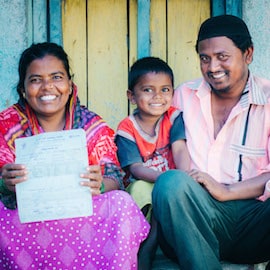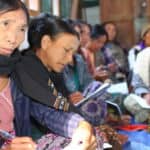Who Pays and What Works? The Changing Market of Inclusive Business Development Services
Business Development Services (BDS) are now widely recognised as being crucial to improving the pipeline of investible, scalable inclusive businesses. Multiple accelerators and incubators have emerged in recent years that help entrepreneurs develop and grow their inclusive business proposition. And many investors now provide technical assistance as part of their BoP investment deals.
There is more BDS on offer for inclusive businesses than ever before. But how effective is it and what still needs to be done to improve the market? The Practitioner Hub for Inclusive Business and the Inclusive Business Accelerator have been exploring these questions and more in a new series on “Inclusive” Business Development Services (IBDS). We’ve garnered views from impact investors, private BDS providers, donors, entrepreneurs and more, to build a picture of the state of the IBDS landscape and reflections on the way forward.
There is consensus amongst the series’ contributors that the IBDS market itself is still immature, still catching up with the explosion of inclusive business and social enterprises over the last two decades. Much is needed – and quite a lot is already happening – to professionalise it. Contributors share their views on the main gaps, challenges and lessons learnt from offering IBDS in young markets. Many share their top lessons for making IBDS more effective. Two questions receive different answers: (1) Who pays for IBDS? (2) Do inclusive businesses need anything different from mainstream business?
Why is payment for IBDS such a problem? The need for IBDS is huge at early stages, from innovation to securing investment. But the returns are only captured later, once investment is secured and profits flow. So who pays for inputs needed now?
Simon Meier looks at this issue, focusing on the pre-investment technical assistance that is needed to unlock impact investment in East Africa. Without pre-investment technical assistance, too few deals will be investable. He introduces FSG’s new report, which calls for a market-sensitive, donor-funded facility to secure up-front payments for commercial IBDS. Ross Masood of DFID explains why DFID see this issue as critical and why they commissioned the report. Jon Shepard runs Ernst & Young’s enterprise support services for social enterprise. He explains the logic for providing international IBDS at “low-bono” rates, on the premise that support that comes free is often wasted. Karen Smith outlines the challenges that come with dependence on donor-funded business support in Malawi, which can mean support that is inappropriate and inflexible.
What type of BDS do inclusive businesses actually need, and is it what is being offered? If you like ruthless and frank analysis, read Noah Beckwith’s view that the current IBDS offer is too focused on the specialist skills of the providers, the social aspects of business, and not the core business-planning needs of entrepreneurs. It’s not “either or” but “both,” argues Sarah Marchand from TechnoServe. The technical assistance (TA) fund it runs for agricultural investees provides both core business TA and inclusive business TA.
Peter Masaaba, running B-Space BDS services in Uganda, puts business management and entrepreneurial skills at the top of the list of SME needs, while highlighting the importance of entrepreneur-to-entrepreneur exchange in the classroom. Peer-to-peer learning is highlighted too, by Anais Mangin and Clara Hidron, with examples from epOnsite. Mark Ingram comes with a different view, looking at the particular challenges of a business model that bakes social impact “into the cake itself” rather than as icing. This in turn calls for IBDS providers skilled in navigating unusual terrain.
The immaturity of the IBDS market has been demonstrated in ecosystem mapping by Endeva. Christian Pirzer highlights that the much-maligned policy context for inclusive business is actually ahead of the IBDS system for inclusive business.
So what is needed for Inclusive Business Development Services to catch up with the needs of the IB space? Mayke Harding, from the Inclusive Business Accelerator, explains the gaps in IBDS supply and how “professionalisation” is needed through guidelines, training and accreditation. Mayke’s colleagues explain that this means in practice: how tools are created to help entrepreneurs and BDS providers work through key steps (reminding us that tools tell you what to do, but training teaches you how to do it). Two IBA-certified trainers, Frank Kitonga and Guustaf van de Mheen, recount their own experience, using tools to successfully challenge entrepreneurs to rethink their value proposition or target market.
IBDS comes in all shapes and sizes. Carolin Schramm focuses on initiatives that support entrepreneurs to innovate or partner, and what the Connect to Grow initiative learnt from mapping 70 such programmes. Stefanie Bauer from Intellecap looks at the niche of corporate support for SME acceleration and incubation, reporting on the astonishing growth of this segment. Apollo Segawa from CURAD, Uganda, explains that acceleration for agribusiness needs to offer something different, including physical space for operation.
The overwhelming message from the series is of testing, challenging and inching forward. I confess at this point that in 2005, a colleague and I sought to convert a donor-funded programme providing technical support to inclusive tourism operators in South Africa into a sustainable fee-based entity. We failed. So the questions of what entrepreneurs really need, who pays for BDS, and how the IBDS ecosystem will evolve, has been around for a while. It looks like it will be around for at least the next decade, too.
Read the full IBDS series here. Visit the Search Inclusive Business online database of support organisations to find the details of organisations providing financial and technical support to inclusive businesses.
A version of this blog originally appeared on the Practitioner Hub for Inclusive Business website; it’s reprinted here with permission.
Caroline Ashley is the editor of the Practitioner Hub for Inclusive Business.
Photo courtesy of TechnoServe. Homepage photo credit: UNAMID, via Flickr.
- Categories
- Uncategorized



